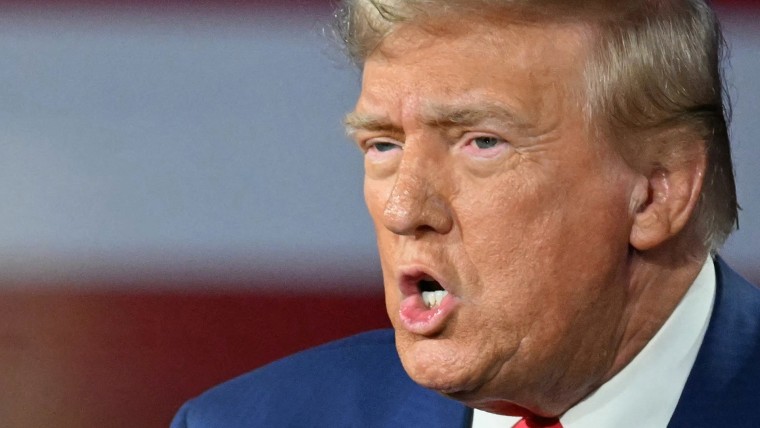Former Rep. Liz Cheney, who served as the House Republican Conference chair as recently as three years ago, gave the political world a jolt last week when she publicly endorsed Kamala Harris’ Democratic ticket. It was a timely reminder that for those who value democracy above all other considerations, principle must come before party.
Just as notable was the news from her father, former Vice President Dick Cheney, who also endorsed Harris late last week. In the recent past, the idea that this hawkish, lifelong conservative Republican, known for his unrelenting partisanship and proudly telling a Senate Democratic leader, “Go f--- yourself,” would publicly back a Democratic presidential candidate seemed unthinkable, but the Wyoming Republican said in a written statement, “In our nation’s 248-year history, there has never been an individual who is a greater threat to our republic than Donald Trump. ... As citizens, we each have a duty to put country above partisanship to defend our Constitution.”
For his part, Trump responded by describing the former vice president as a “RINO,” offering a timely reminder that the “Republican In Name Only” label no longer has any meaning.
Nevertheless, after last week’s news, it wasn’t long before some started wondering whether Cheney’s former partner in the White House might follow his lead. As NBC News reported, that’s apparently not going to happen.
Former President George W. Bush does not plan to endorse a candidate for president, his office told NBC News on Saturday. When asked whether the former president or his wife, Laura, would endorse a candidate or make public how they will vote, Bush’s office said “no.”
This comes four years after Bush also remained neutral in the 2020 presidential race. (After the election, the former president said he wrote in former Secretary of State Condoleezza Rice for president on his 2020 ballot.)
At this point, it’s worth pausing to appreciate the bigger picture.
Barring any surprises or dramatic reversals, the Republican Party’s 2024 presidential candidate won’t have the support of his party’s 2000, 2004 or 2012 presidential nominees.
What’s more, Trump also won’t have the support from the GOP’s 2000, 2004, 2012, 2016 or 2020 vice presidential nominees.
Regardless of what one might think of these former officials and their highly controversial records, an important question hangs overhead: When was the last time a major-party White House hopeful failed to receive endorsements from so many of their own party’s national candidates?
The answer is never. In the American tradition, it has literally never happened. There have been occasional intraparty fights along these lines — Teddy Roosevelt made little effort to hide his frustrations with William Howard Taft, for example — but there’s no precedent for the kind of resistance Trump is facing from his own party’s recent national nominees.
Bush’s office told NBC News on Saturday, “President Bush retired from presidential politics years ago.” Maybe so. But Bill Clinton and Barack Obama have also retired, and they’re not only enthusiastic proponents of Harris’ candidacy, they were also celebrated at their party’s recent national convention.
The Republican convention, in contrast, featured zero former presidents speaking in support of Trump.
It led The Bulwark’s Jonathan Last to recently note, “That’s a portrait of two institutions: One institution in harmony with its legacy and continuing to evolve in such a way as to hold its coalition together. The other institution in a state of convulsion.”

